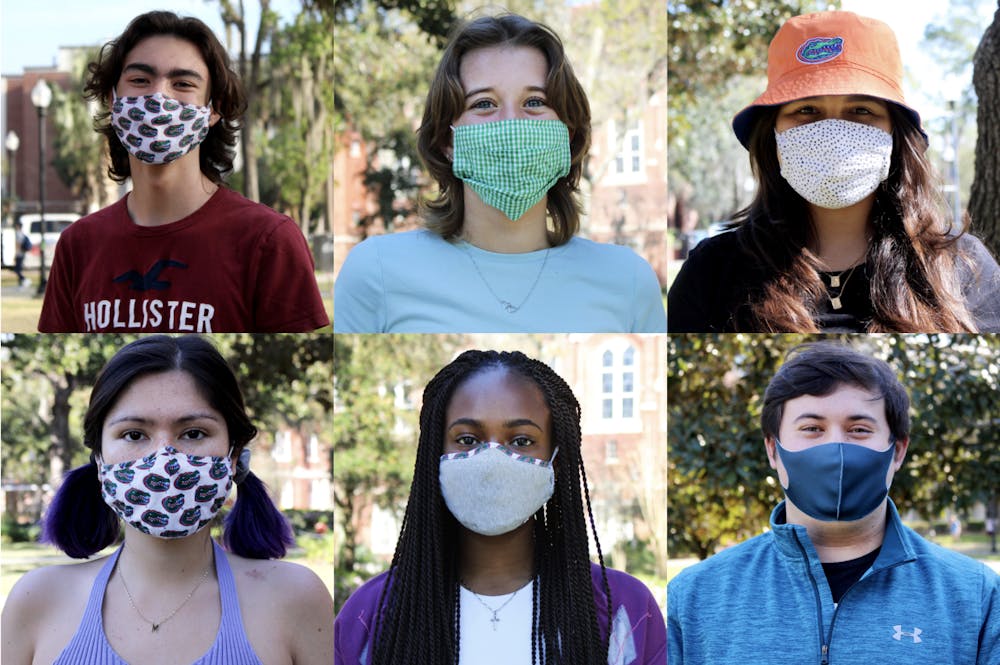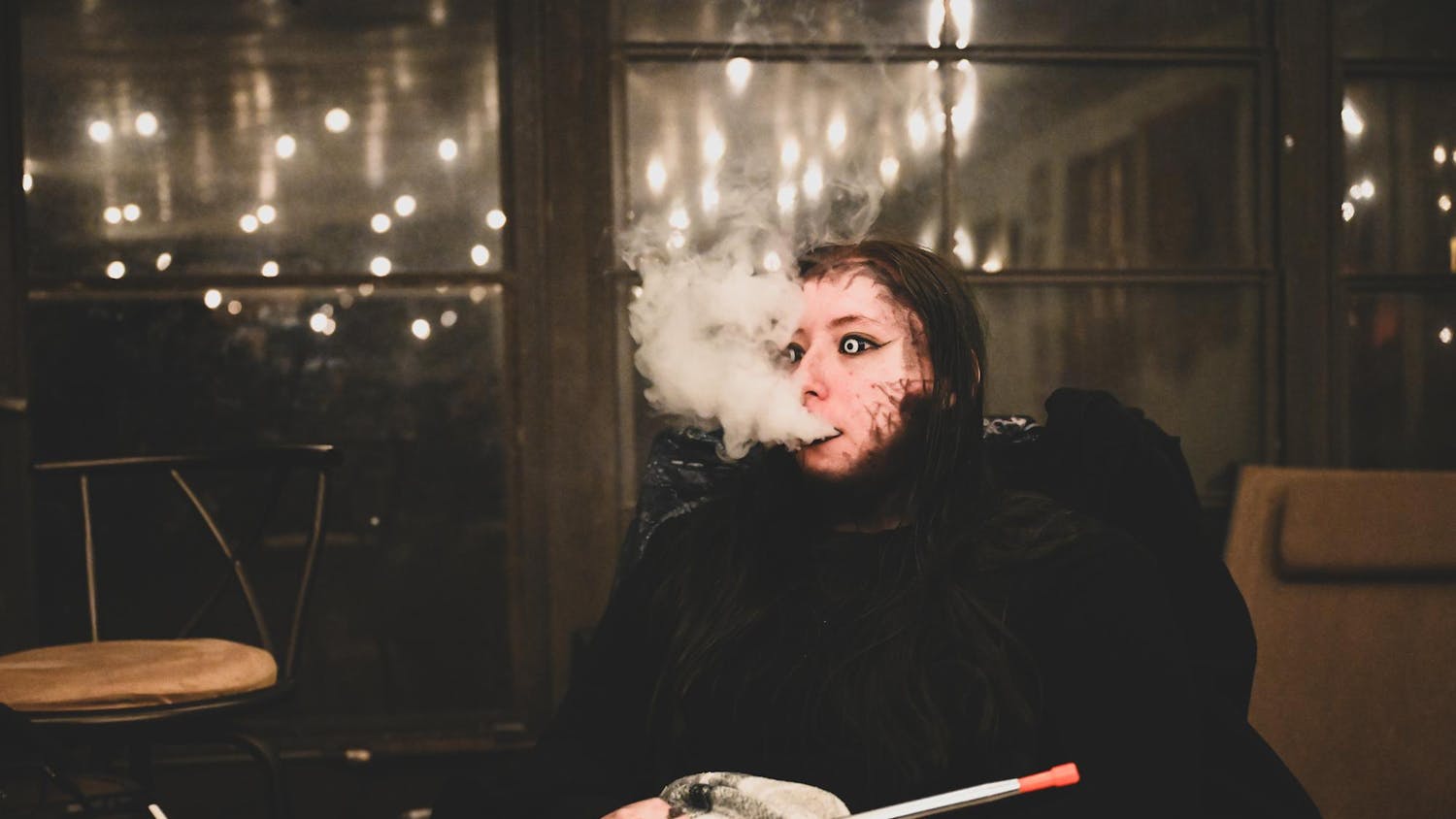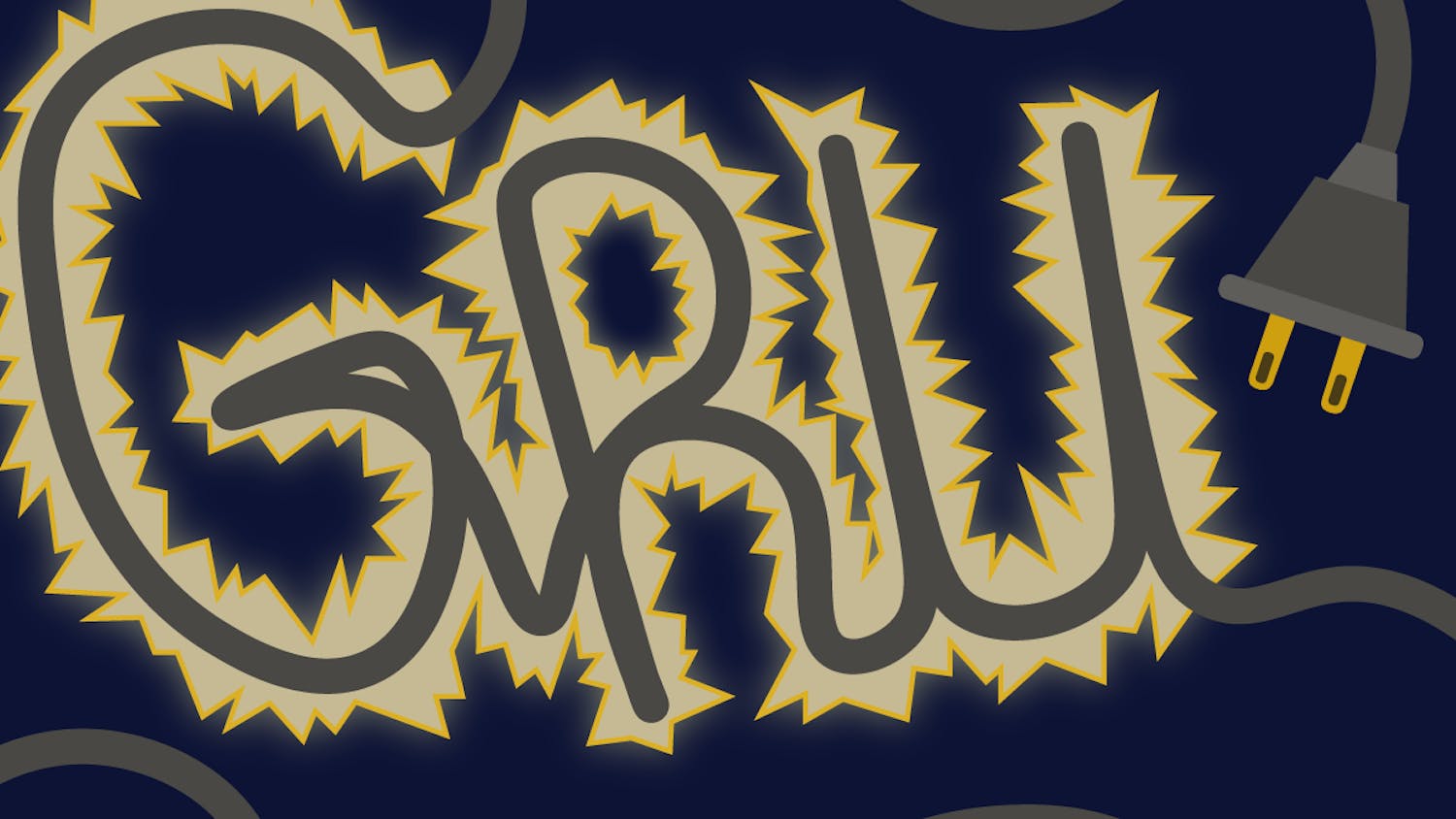Twelve months. Three semesters. One atypical year.
March 11 marks the first anniversary of when COVID-19 –– a deadly virus sweeping the world –– shut down our campus. On that day in 2020, UF President Kent Fuchs emailed students notifying them that all classes would be online starting March 16 and encouraging them to leave town. It was a moment that would change the course of the next year, and for many, their entire college experience.
With scheduled in-person graduations and widespread vaccine promises, UF administration is beginning to discuss a return to normalcy.
But nearly 250 people in Alachua County have died with COVID-19 complications, according to The New York Times. Grandparents hugged their grandchildren through plastic tarps; life milestones were reduced to drive-thru services; and people died alone after exchanging final goodbyes over FaceTime. No matter what life looks like post-pandemic, one thing is certain: Those who perished won’t be here to see it.
Students have altered their lives to follow social distancing protocols, stressed over online classes and attended club meetings over Zoom. Outside the classroom, they missed packing Saturdays in The Swamp, crossing the stage in a cap and gown, loading buses to formals and spending Starbucks-fueled all-nighters in the library. A year later, UF students reflect on the impact of the past year. While some talk about their return to an empty campus, others explain how their college memories have been confined to computer screens and kitchen tables.
Lily Olsthoorn
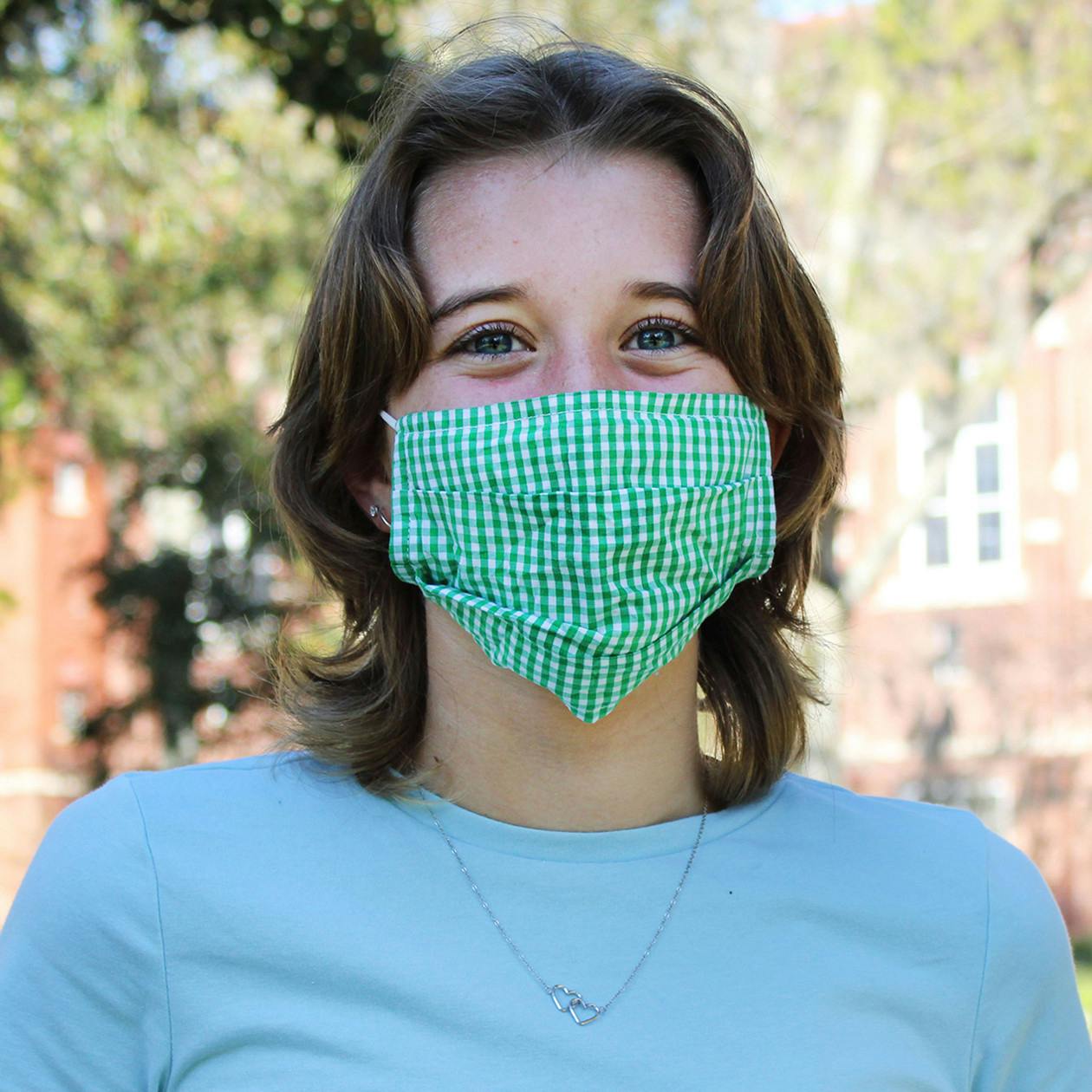
Lily Olsthoorn shaved her head during the first few months of the COVID-19 pandemic. It was an eventful time in her life, she said. In the homestretch of her high school senior year, she was waiting on college decisions, preparing for a water polo competition and dealing with a breakup — all while the world was entering a global pandemic.
“The pandemic was pretty much a catalyst for a lot of healing. Even though it's the opposite of what you'd expect, I feel like I'm giving myself more chances for my mental health to get better,” the 19-year-old UF undeclared freshman said. “So overall, I'd say it's been positive for me.”
Olsthoorn’s two older brothers are UF alumni, and she remembers the energy of the school when she visited them here five years ago. The memory is preserved in her head as a reminder of the way things used to be, but she can’t fathom experiencing the UF that way herself.
“In the last couple months, I've been really trying so hard to meet people,” Olsthoorn said. “And I feel like I've gotten a little bit better at talking one-on-one, but when I'm going to be back in like a big social setting, I won't know how to act just because it's been so long.”
Melody Palmer
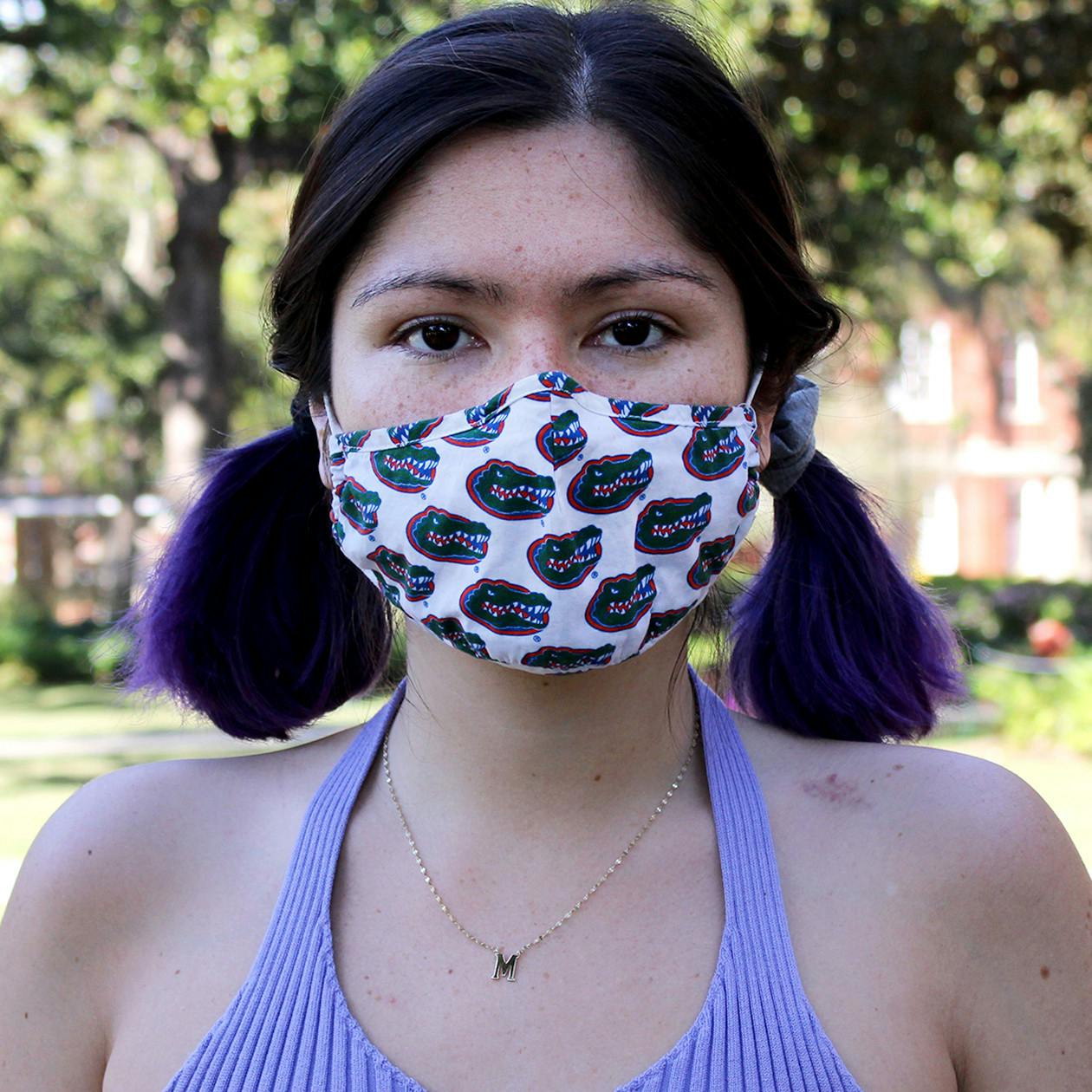
Melody Palmer remembers standing in line for Chipotle when she read an email from UF informing students classes would transition online. She remembered thinking if all classes would end up online, she would just go home to Port Orange, Florida.
While home, the 20-year-old UF sustainability studies sophomore lived with her 97-year-old grandfather. Due to her grandfather being at increased risk, she was cautious about leaving the house for his safety and avoided it as much as possible.
“I think I've lost a lot of respect for some people during the pandemic, just by seeing the people who like to go out,” Palmer said. “I don't know if I can view you in the same way.”
Alexandra Quintana
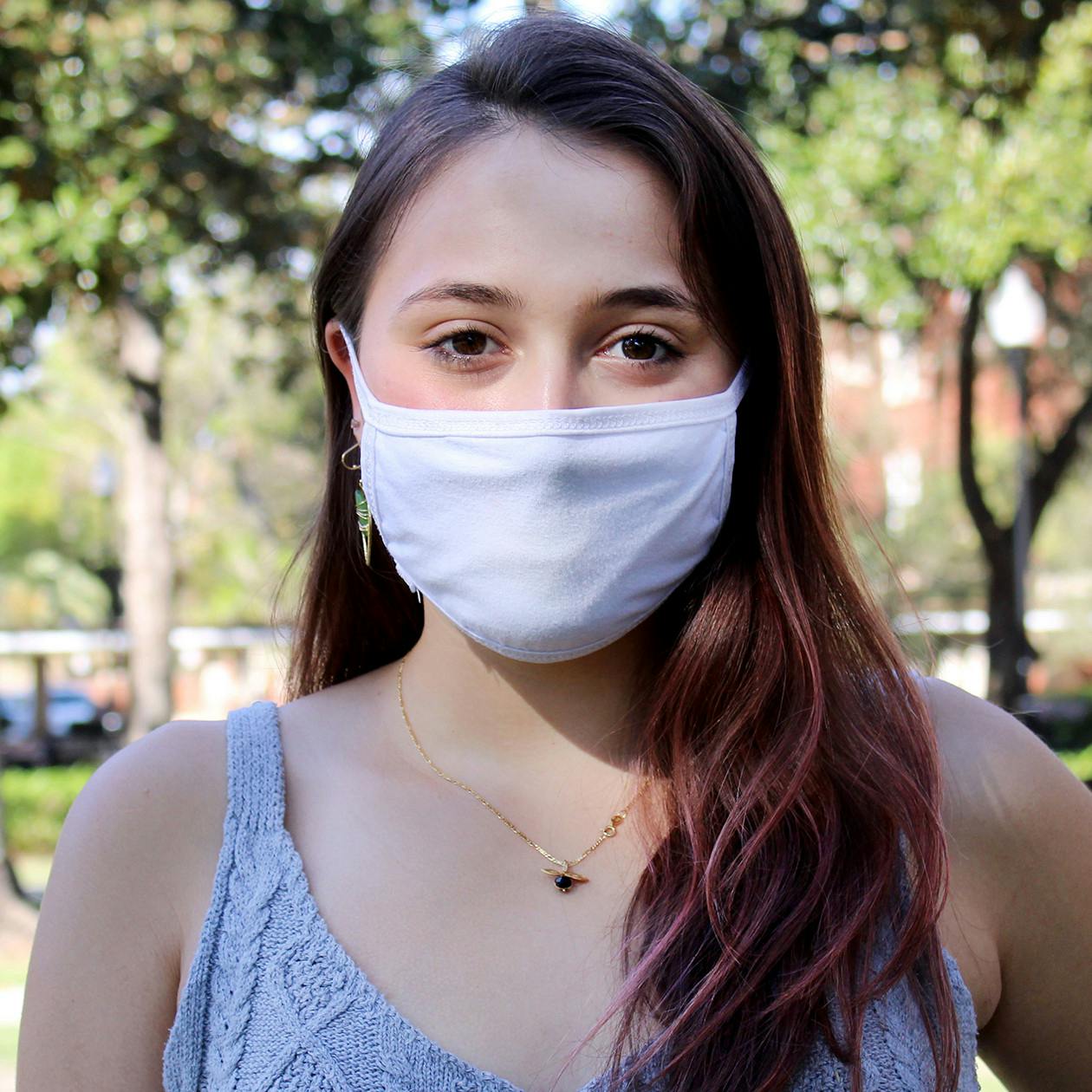
Alexandra Quintana said the first few months of the COVID-19 pandemic allowed her to take a break from being stuck in a routine and reflect on herself and the world around her.
“I feel like I’m a completely different person,” Quintana, a 19-year-old UF political science sophomore, said. “I feel like we all are. I feel like there’s no way we could be the same after that.”
After they were sent home from UF, she and her friend Gabrielle Adekunle created Take Action Florida, where she is currently the vice president. The lobbying organization, which focuses on education and activism on different social issues, will focus on gender and sexuality issues for Women’s History Month.
“I feel like that's why the movement like the Black Lives Matter movement picked up when it did because we were all just really empathetic and understanding at that time,” Quintana said. “We had nothing else to do but sit down and listen.”
Isabela Martinez-Moure
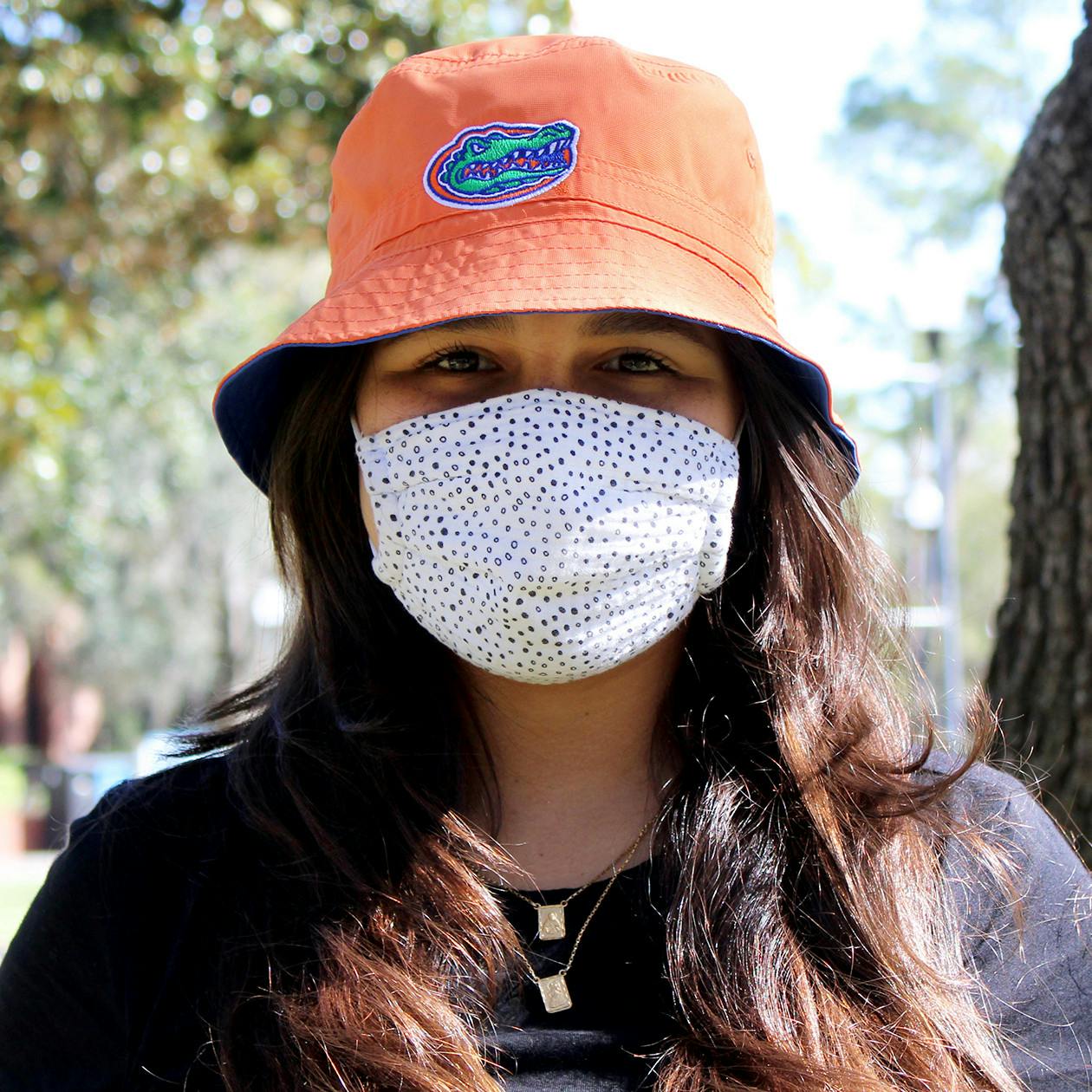
Isabela Martinez-Moure remembers waking up with heavy breathing after having nightmares that she hadn’t graduated from high school.
“I was lacking closure so much that my brain couldn’t process that I was done,” the 19-year-old UF business administration freshman said.
As a high school senior, she was very involved, working on events for student government and leading as captain of her school’s sailing team. She regrets never saying goodbye to her teachers and coaches.
Martinez-Moure never imagined how the pandemic would change the vision she had of her life in college. She said she had a hard time transitioning from her close relationships with people in Miami to involving herself with new people and activities at UF.
“It was definitely hard going from such a tight-knit community where people know you for who you are to coming to a new school where the reality is, unless you get involved, you're just a number,” she said.
Ben Whitman
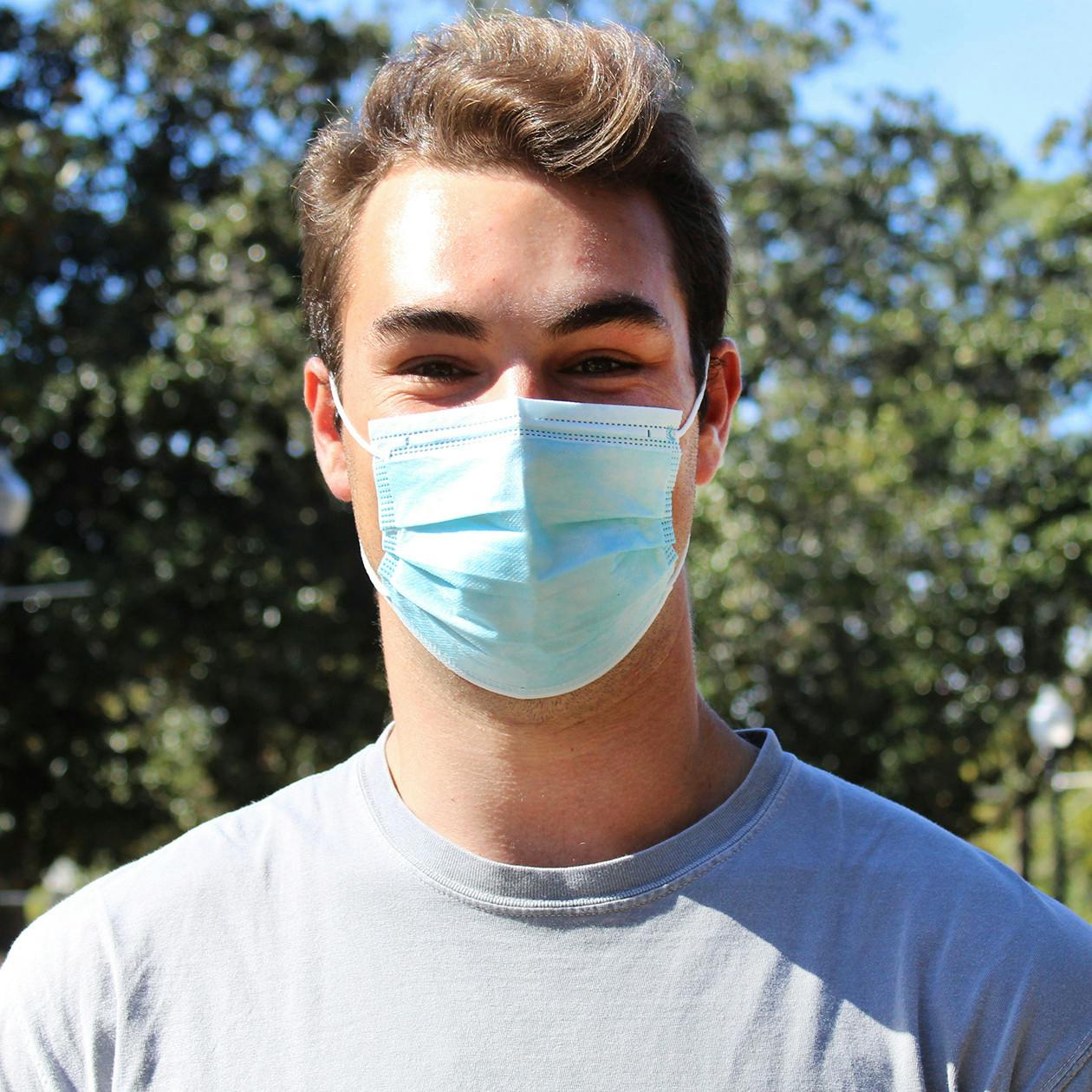
Ben Whitman, a 20-year-old UF industrial engineering sophomore, said the COVID-19 pandemic hasn’t affected him as much as it has other people.
“I still do my normal stuff like going out with my friends,” he said. “I’m not totally changing my life.”
Although he wishes he could meet more people, Whitman said he enjoys scuba diving with Gator Scuba Club and participating in outdoor activities hosted by Outdoor Adventure Recreation, such as canoeing and hiking.
Alesha Wallen
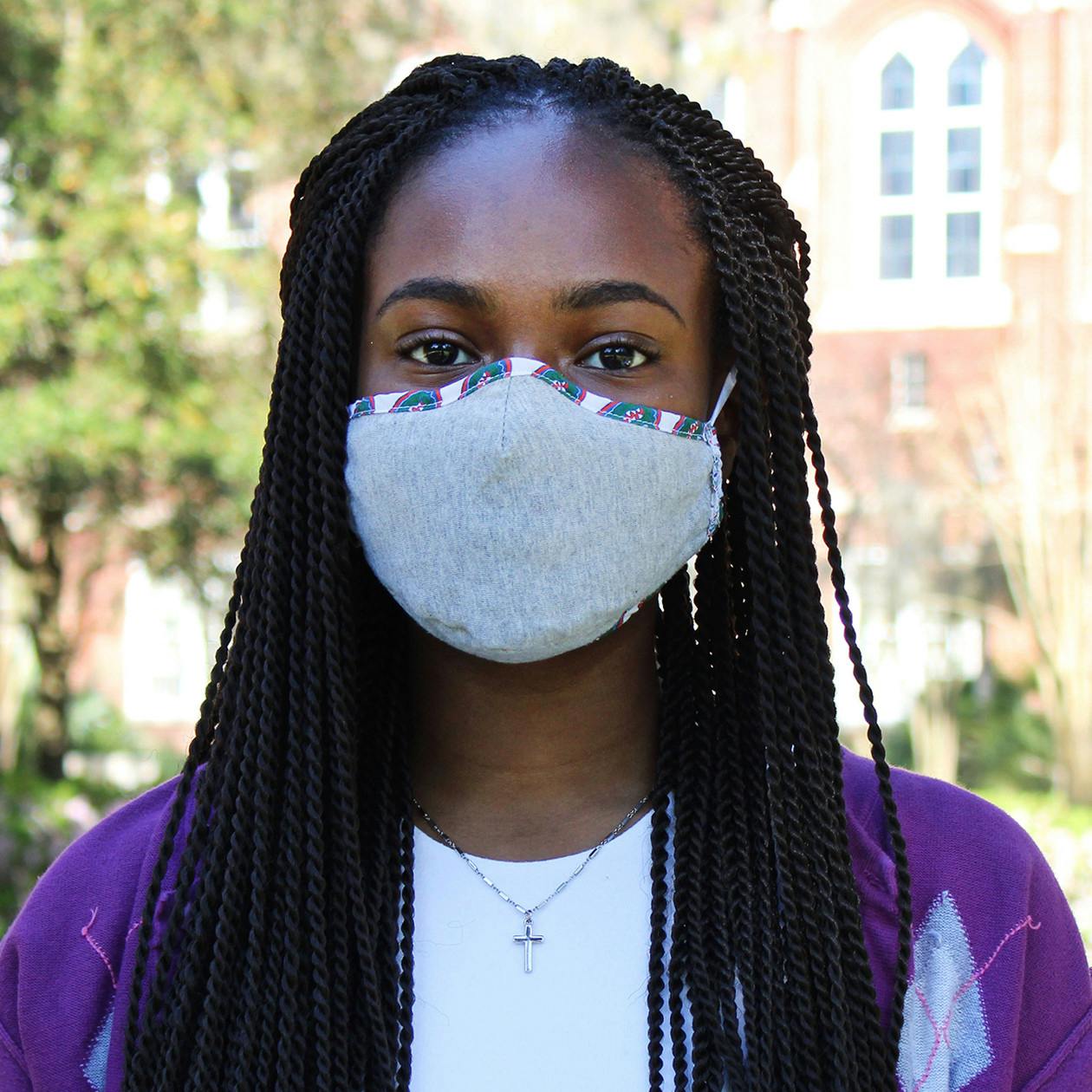
During the first few months of the COVID-19 pandemic, Alesha Wallen itched for a dramatic style change.
Lockdown allowed her to go through a transformation that increased her confidence in her appearance, she said. She updated her wardrobe and put together a skincare routine that made her complexion better than ever.
“I remember when the pandemic first started, I would just sit in front of my mirror, get ready and put on clothes just to feel good,” the 18-year-old UF biology freshman said.
Although Wallen said she made an effort to improve her style, her motivation for school tanked and now social situations feel draining.
“I think I've become more introverted where I’ve become unable to talk to people in class and bad at starting conversations,” she said.
Wallen said the social anxiety she developed over the COVID-19 pandemic has become so overwhelming that she can’t imagine how she will adapt when all classes are in person and she will have to attend large lecture hall classes.
“One of the biggest changes for me was the difference between last semester and this semester in the number of people on campus,” she said. “Like the change was so crazy for me walking around and seeing more people, like when I go to Starbucks and have to wait in an actual line."
Everett Schwieg
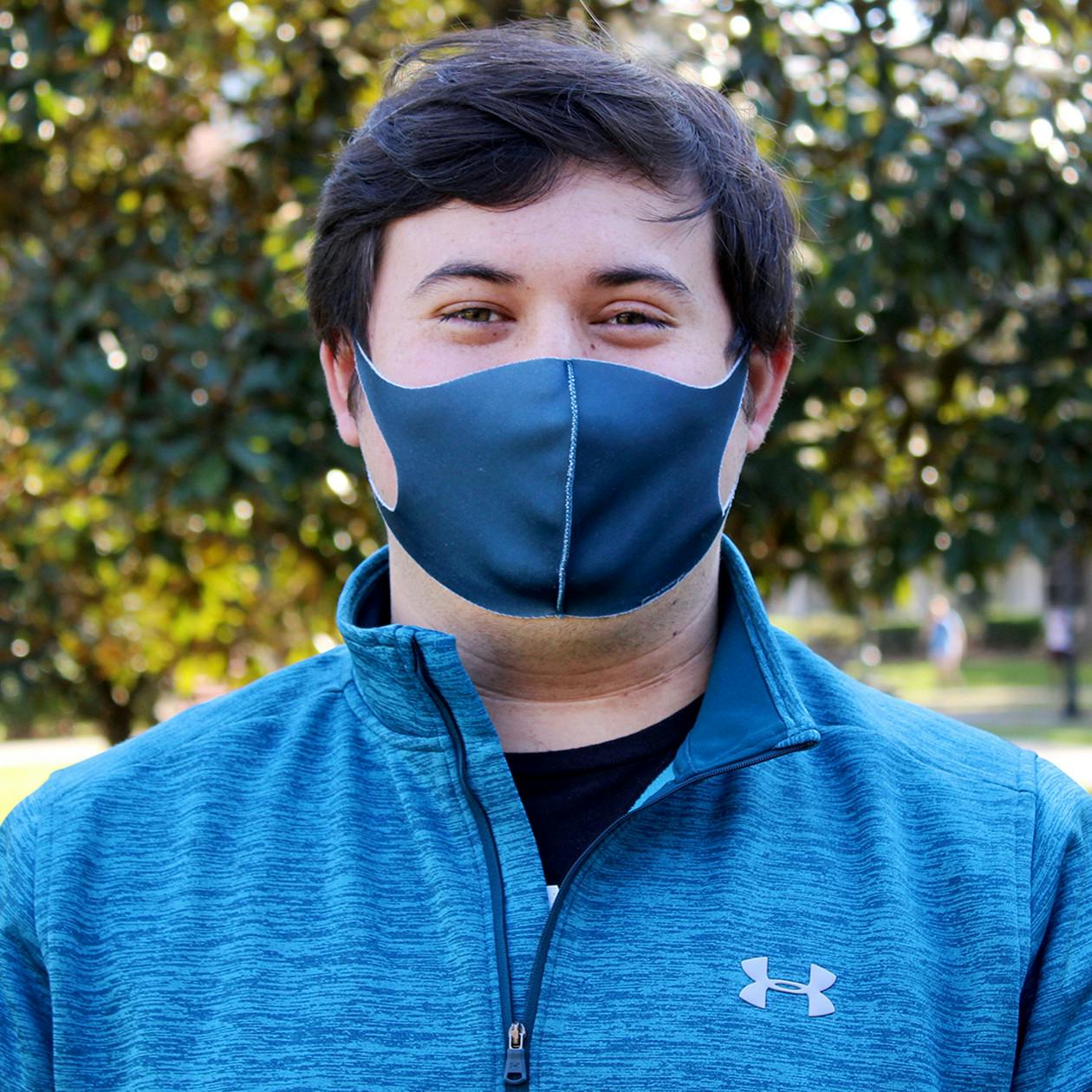
When UF first announced its campus shut down, Everett Schwieg was excited to take a break from his sophomore year spring semester.
“A year ago, we didn’t imagine that the pandemic would be still going on,” the 20-year-old UF biomedical engineering junior said. “It was a little more lighthearted at the time.”
A lot has changed for him since then — he finds himself spending more time alone than before. Schwieg said he feels like online classes have made the past year especially lonely.
“Going to class and meeting up with people after was very natural. I didn't feel like I was having to push myself to go out,” he said. “But now I'm always trying to push myself to not sit in my room all day.”
With one year left at UF, Schwieg hopes he will return to having more in-person classes.
“I’ve never been a huge fan of online learning, even before COVID,” he said. “I liked having a routine and attending my classes.”
Renier Rodriguez
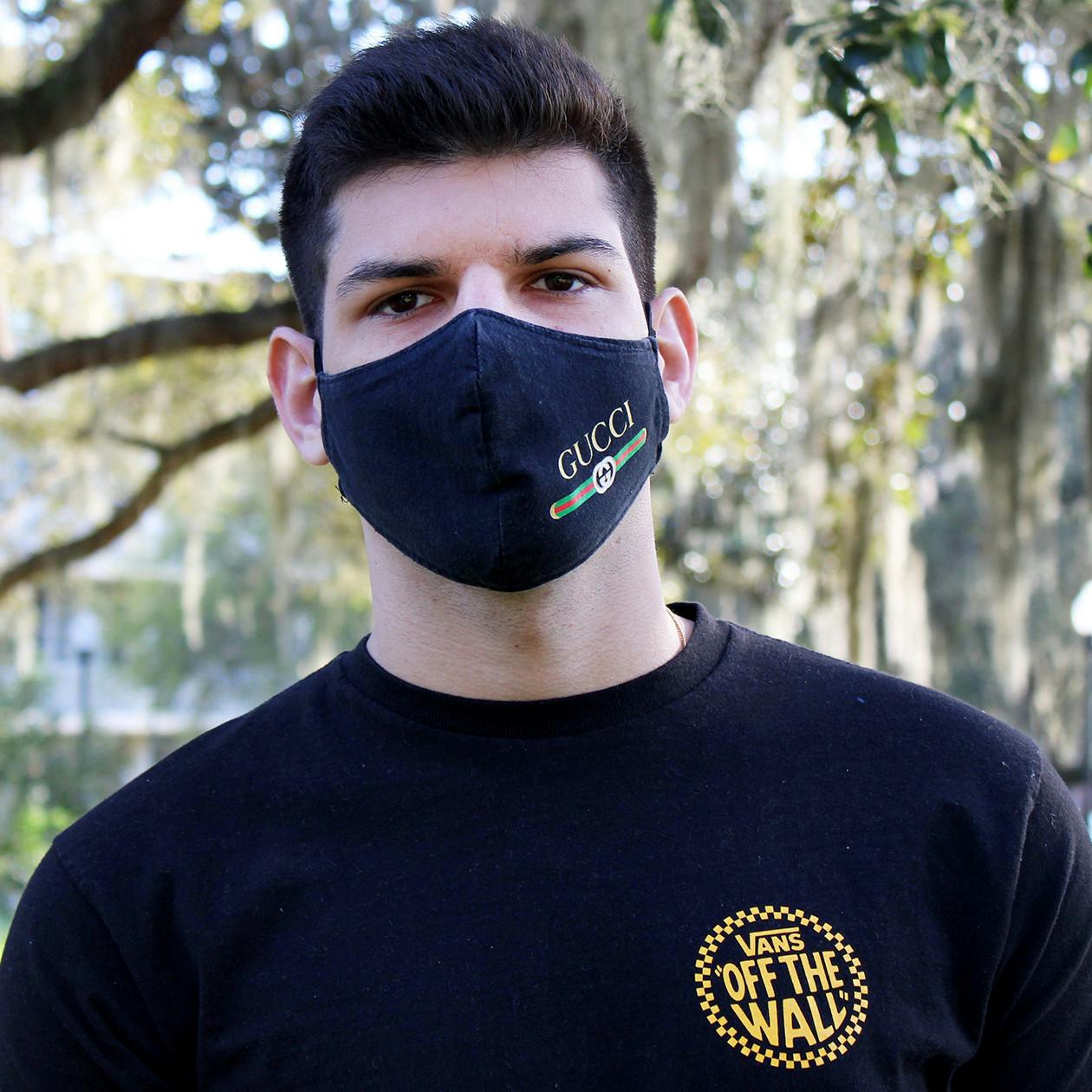
This past year has made Renier Rodriguez more grateful for his supportive friend group.
Two weeks ago, he texted a friend and fellow UF student that he was feeling alone. On Friday, they decided to catch up with each other on a walk around Turlington Plaza.
“It's been really motivating to see that people are there for you,” the 20-year-old UF political science sophomore said. “And it’s great to find motivation within yourself to do your own things that you actually want to do.”
After the COVID-19 pandemic started, Rodriguez immediately went home to South Florida to help his family. He took care of his little brothers for his mom, who is an essential health care worker. When his family contracted COVID-19, he found it hard to help them and maintain his studies at the same time.
Rodriguez also said he misses the team sports he participated in his freshman year. He played basketball and volleyball competitively and soccer and football recreationally at UF before the pandemic.
During the start of the pandemic, Rodriguez took a sports hiatus. However, he became insecure about his weight gain. Now, he tries to visit the park when it’s empty to shoot some hoops by himself or with a small group of friends.
“Physical activity is my relief,” he said. “I started doing individual exercises because I just couldn't deal with it anymore. It was affecting my mental health as well.”
Cameron Johnston
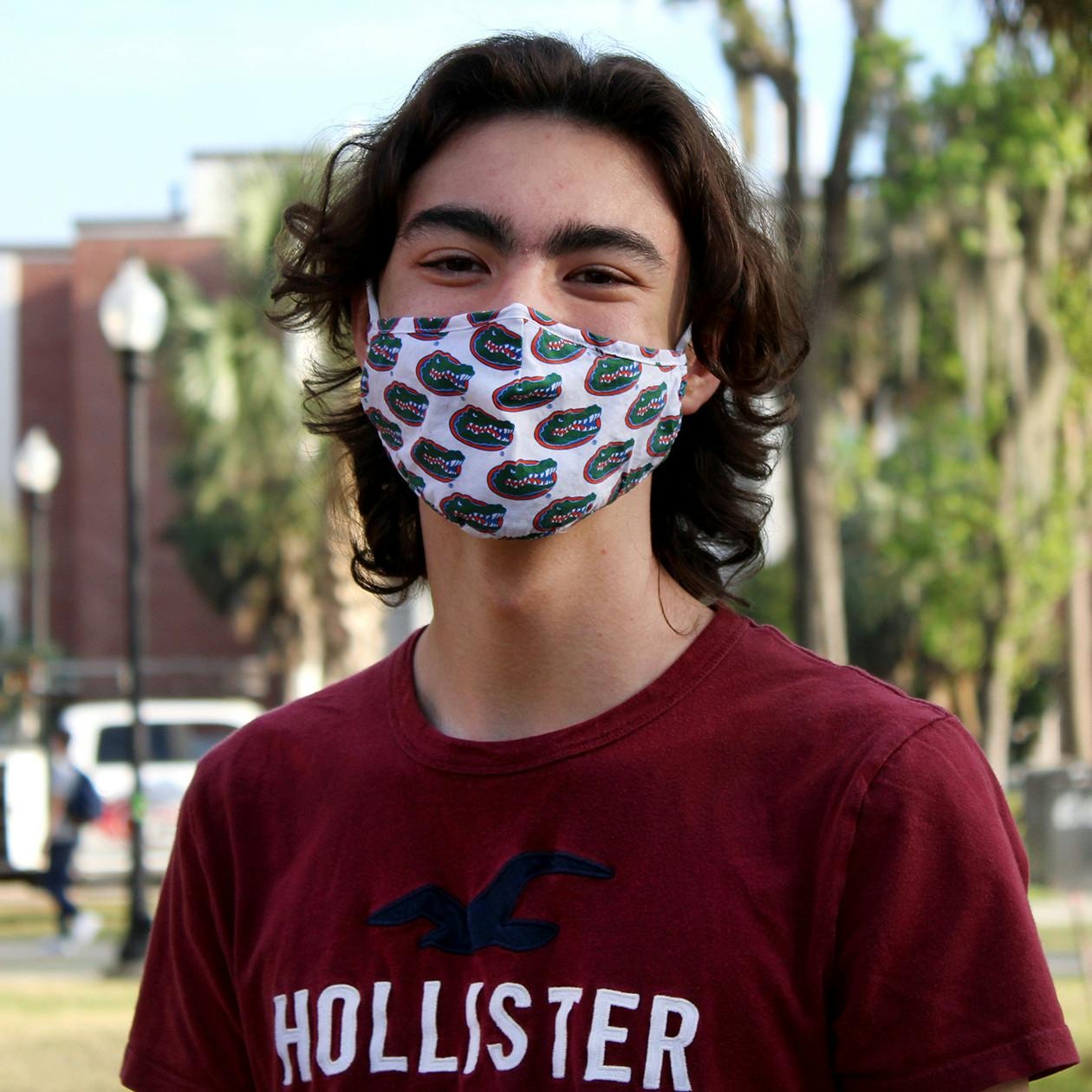
When Cameron Johnston pictured his college years back in high school, he imagined walking around a busy campus and attending giant lecture halls alongside hundreds of people.
However, like many others, Johnston did not get the college freshman year he imagined for so long.
“It was so unexpected,” the 18-year-old UF nuclear engineering freshman said. “My whole year was online and didn’t have any in-person classes. I never went to any clubs. I never went to any parties. I didn't get to hang out.”
Johnston said he wants a real college experience, but any return to normalcy would probably begin with a gradual shift.
“I think the impact of people being socially distanced and wearing masks sometimes in public might stick around,” he said. “Some people just might never feel comfortable going back.”
Contact Jiselle Lee at jlee@alligator.org. Follow her on Twitter @jiselle_lee.
Jiselle Lee was The Alligator’s Summer 2023 Editor-In-Chief. She was previously a reporter with NextShark News and a reporting intern at The Bradenton Herald.


